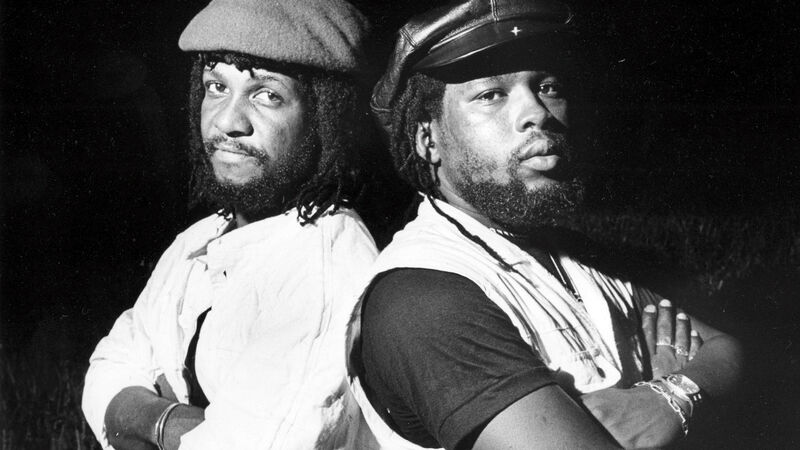Jamaica punches above its weight and influences all kinds of music

Most music historians acknowledge the massive influence of Jamaican artists such as Sly & Robbie.
The tiny Caribbean island is not much bigger than the county of Cork, but it has had a profound influence on all kinds of music. We obviously associate Jamaica with Bob Marley and reggae first and foremost, but this music is from a rich ecosystem that includes ska, roots, rocksteady, dub, dancehall, and more. But even a cursory look at music history will show that the Jamaican influence spreads much further, into genres as diverse as punk, hip-hop, garage, jungle, and grime. How come Jamaica has had such an impact?
Well, there are a number of reasons, really. First of all, Jamaica is a former British colony whose people, like the Irish, have gone on to emigrate all over the world. There is a huge Jamaican diaspora in the United States and Canada as well as the UK, but like us, they are all over the world. I often felt that Ireland was in a unique place when it came to its pop culture influences being heavily dominated by the US and UK, but Jamaica is another country that has soaked up influences from everywhere. It’s between both South America and North America and much of its natives are of African origin, with lots of ancestry connecting Jamaica to Europe, China, India, and other places.
The original roots of reggae and ska come from the days where US radio used to beam its large signal onto the island, where Jamaicans grew up listening to the likes of Ray Charles and Fats Domino. Cover bands copied their own favourites from the US scene, but soon put their own twist on it, and Jamaicans eventually started preferring their own music to that of the Americans.
The soul and jazz roots of the music that became known as ska and reggae cannot be overestimated, and even now, 50 years on, it’s impossible to listen to those early Bob Marley And The Wailers records without thinking of American greats such as Curtis Mayfield And The Impressions.
The reggae which helped make the island famous musically obviously went around the world too, though Bob Marley’s own global superstardom was strategically managed by Island records, who marketed him like a rock star and who made the music more accessible to white audiences by bringing more of a rock vibe to both his shows and recordings.
Other great Jamaican artists often found it hard to escape from the large shadow that Marley had over the export of this music, but most music historians will acknowledge the massive influence of greats such as Lee Scratch Perry, King Tubby, Augustus Pablo, Sly & Robbie, Burning Spear, and many many more.
Jamaica has a rich musical heritage that extends beyond the various strands of reggae into jazz and soca and calypso, while in more recent decades, dancehall reggae has had a profound influence on modern hip-hop, and indeed pop music.
Ironically, a country occupied by many African slaves has exported a huge dancehall influence on modern afrobeats too, which is one of the biggest global pop sounds of the last 10 years. Similarly, reggaeton is indebted to dancehall and other genres, and its best-known riddim was made famous first by Jamaican Shabba Ranks.
Jamaica won independence from Britain in the early 60s, but many Jamaicans helped shape the music of the UK in subsequent decades, as mass migration from the small island brought ska, dub, rocksteady, and reggae to Britain. The kids and grandkids of these initial migrants helped shape garage, drum n’ bass, and grime, but in truth, Jamaican sound system culture was arguably the single most important element in the creation of the music we now know as dance, hip-hop, and electronica.
DJs such as Kool Herc brought sound system culture to New York and shaped the future of music into what eventually became hip-hop. Hip-hop DJs and MCs are basically still using methods that were developed on the lawns and street corners of Kingston back in the day. Vinyl culture is similarly indebted to this small island, where dub plates kept reinventing great riddims that have lasted forever.
Nowadays Jamaica continues to export huge artists such as Sean Paul, Beenie Man, Damian Marley, Spice, and Koffee, and overall its impact has endured.
We are deeply indebted to Jamaica and its culture, which is as important as ever in 2023.







